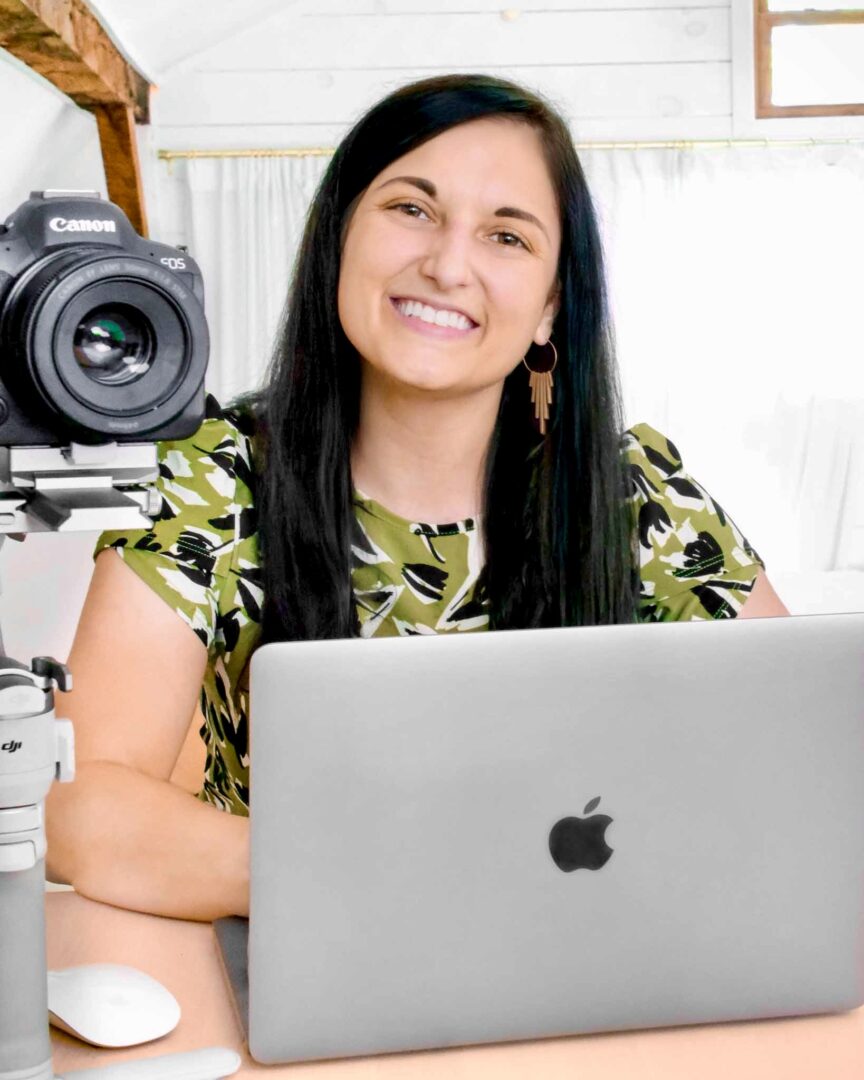We were lucky to catch up with Lucia Lombardo recently and have shared our conversation below.
Lucia, first a big thank you for taking the time to share your thoughts and insights with us today. I’m sure many of our readers will benefit from your wisdom, and one of the areas where we think your insight might be most helpful is related to imposter syndrome. Imposter syndrome is holding so many people back from reaching their true and highest potential and so we’d love to hear about your journey and how you overcame imposter syndrome.
Do It Scared
My Journey Through Impostor Syndrome
Have you ever felt like an impostor? Like everyone around you believes you’re more capable than you really are? For most of my life, that feeling followed me everywhere.
Growing up, people would comment on my height and legs. As a short Italian woman with what my family lovingly calls my “Pelino Legs,” I often heard, “You must be a gymnast!” And for a while, they were right. I was a decent tumbler, even though my neurologist had already told me I’d never become a true gymnast. Seeing how hard it was for me to let go of that dream, my mom made me a deal: if I couldn’t do gymnastics, I could cheer instead.
Cheerleading quickly became my world, and for thirteen amazing years, I poured everything I had into the sport. I even received a scholarship to join a competitive dance team! But when injuries finally forced me to stop, the identity I’d built for over a decade was suddenly gone. I felt lost, ashamed, and unsure of who I was without it.
For years, I held myself back out of fear that my body, or my abilities, would fail me again. Besides cheer and dance, I only had one other passion: filmmaking. Another trait that I inherited from the Pelino side of the family. I decided to choose that path in college, but convinced myself I wasn’t “capable enough” to handle the heavy camera gear or the technical side of production. So, I stuck to writing and producing while letting others tackle the equipment and tech.
Later, while living in Los Angeles, I was offered an amazing opportunity to work on the set of the reality show Big Brother as a production assistant. But I turned it down, not because I didn’t want it, but because I wasn’t certain that I could physically do it. So, I stuck to safe office roles, roles where I knew I would succeed. Yet deep down, I knew I wasn’t living the life I truly wanted. Eventually, I reached a breaking point. I was tired of playing small. I finally admitted to myself that I needed help. That’s when I started therapy.
In those early sessions, I felt both relief and resistance. I kept thinking, “My struggles aren’t bad enough to deserve help.” For so long, I had convinced myself that I needed to be exceptional to be worthy of support, success, and love. Self-compassion became my antidote: the willingness to treat myself with the same kindness I so easily offered to others. Surrounding myself with people who encouraged empathy and vulnerability helped me see that its not about never struggling, it’s about sharing the struggle honestly. As Brown puts it, “Courage gives us a voice, and compassion gives us an ear. Without both, there is no opportunity for empathy and connection.”
One day, my therapist gently introduced me to the concept of impostor syndrome and its various manifestations: the perfectionist, the natural genius, and the soloist who believes asking for help is a sign of weakness. I saw myself in all of them. For the first time, I realized that what I felt wasn’t a personal flaw; it was something countless others experienced too. Naming those patterns didn’t fix everything overnight, but it made me see that I wasn’t broken. I was simply human.
Researcher Brené Brown once said: “Shame works like a zoom lens on a camera. When we are feeling shame, the camera is zoomed in tight, and all we see is our flawed selves, alone and struggling. But when we zoom out, we see a completely different picture. We notice other people who are just like us, struggling with the same fears.”
Over the past three years, I’ve made one powerful decision: to start saying “YES” to the things that used to terrify me.
I applied for opportunities that felt way out of my league, and landed them.
I worked as a videographer for three incredible wedding companies at once.
I invested in myself with a coach and joined networking groups where I met future clients
I launched my own wedding and event video production company, something that once felt impossible for me.
Each time I stepped forward, my world grew bigger. Opportunities opened. Confidence blossomed. And even when things didn’t go perfectly, I walked away wiser than before.
Now, whenever fear tries to creep back in, I think of author Glennon Doyle’s wise words of advice: “If you can’t beat fear, do it scared.”
Overcoming impostor syndrome isn’t about erasing self-doubt or adopting a “fake it till you make it” mentality. It’s about finding the courage to grow through it, to walk into the unknown with fear at your side, and choosing to show up anyway, because you’re worth it!
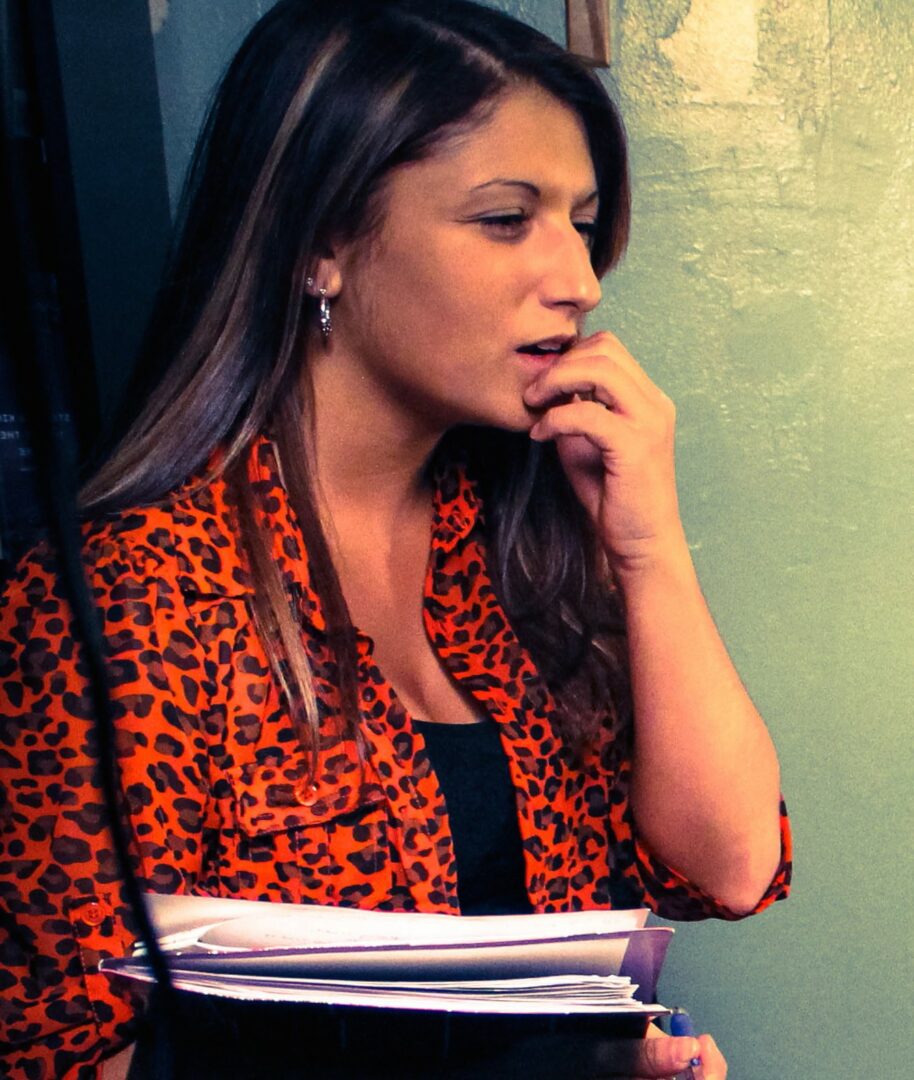
Let’s take a small detour – maybe you can share a bit about yourself before we dive back into some of the other questions we had for you?
I’m not here to just capture the moment. I’m here to bottle the feeling, energy, and meaning behind it all.
I’m Lucia, a video producer with a communications degree from Ohio University, now based in Columbus, OH. After working in studios and production offices from LA to Kentucky to Ohio, I found my way to wedding videography after becoming a bride myself.
It didn’t take long to notice how few women were behind the camera in the wedding world. At almost every wedding I attended, even just as a guest, the videographer was usually the same: a tall, quiet guy trying to blend in but sticking out instead.
As a former bride, I know how much presentation and guest experience matter. When I film, I’m always mindful of the audience—this is a once-in-a-lifetime event people have invested time and money to celebrate. The last thing you want is a videographer blocking Grandma’s view of the cake cutting!
In just one year, I worked with three incredible wedding companies and began taking on weddings of my own. What started as a passion for storytelling has grown into a career I’m deeply proud of.
Today, my company, Lucia Media, is expanding into brand and event videography. Working with The Beauty Boost Columbus as their event videographer has been such a rewarding experience, especially connecting with other female entrepreneurs and brands in the health and beauty space.
High-quality video, brand stories, client testimonials, event reels, and behind-the-scenes footage humanizes a business and builds real emotional connection with its audience.
Whether you’re a bride dreaming of a timeless wedding film or a brand with a story to tell, I’m here to create something authentic, impactful, and uniquely yours.
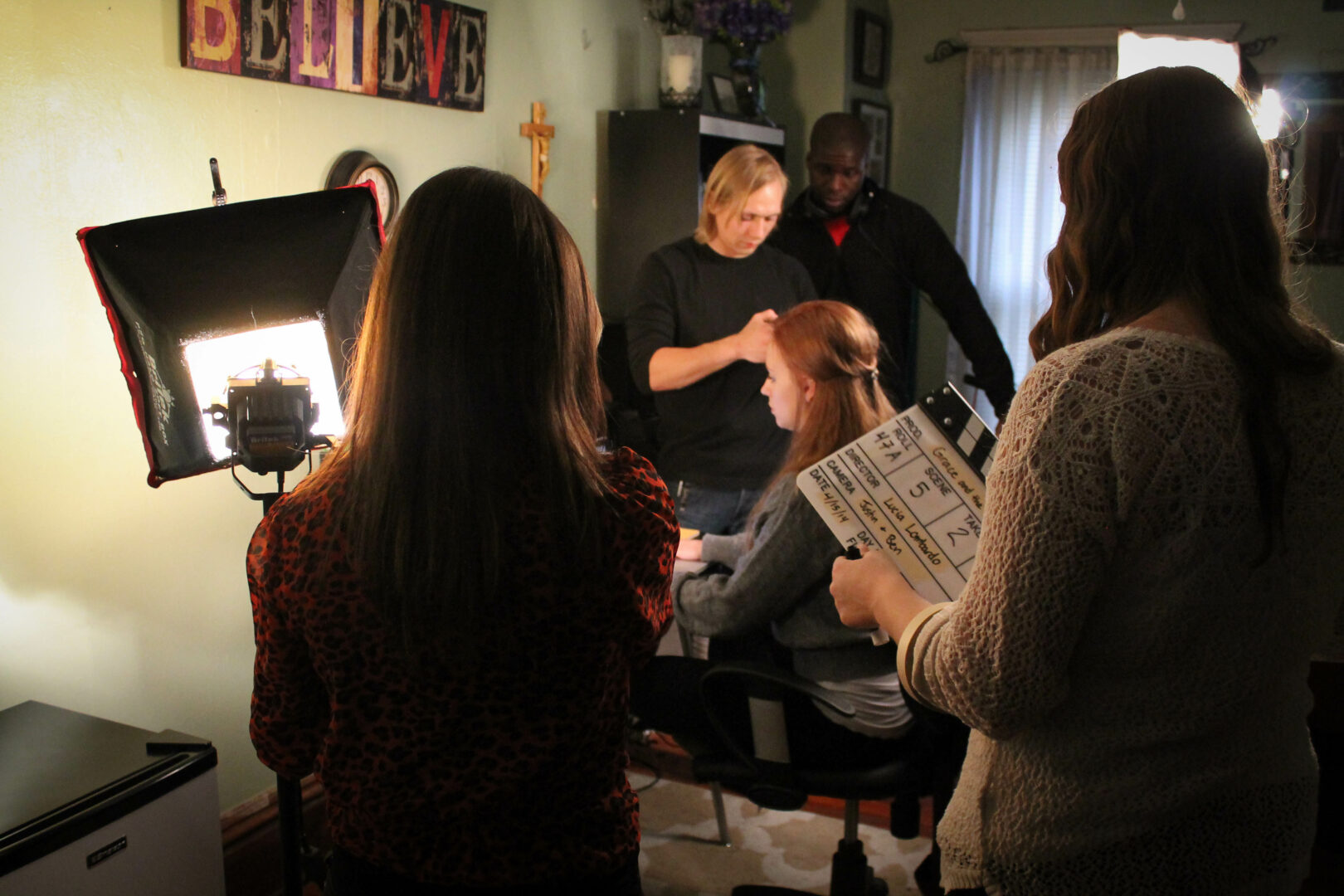
If you had to pick three qualities that are most important to develop, which three would you say matter most?
1. Hard Skills
Specific, teachable abilities or knowledge that can be measured or demonstrated. They are usually gained through education, training, or hands-on experience.
My Advice: Practice with real projects and work with others, study the people ahead of you (but know that their way isn’t the only way, you can make your own path to where you want to go), and ask for feedback often
2. Soft Skills
Personal qualities and traits that affect how you work and interact with others. They’re harder to measure than hard skills but are essential for building relationships, collaborating, and creating a great client experience.
My Advice: Listen more than you speak, pause and think before reacting, be empathetic, and get out of your comfort zone.
3. Self-Awareness
Self-awareness is the ability to clearly recognize your own emotions, thoughts, behaviors, strengths, and weaknesses, and understand how they affect the people and situations around you.
My Advice: Therapy is great. If that isn’t your cup of tea, you can start by learning your Enneagram Type.
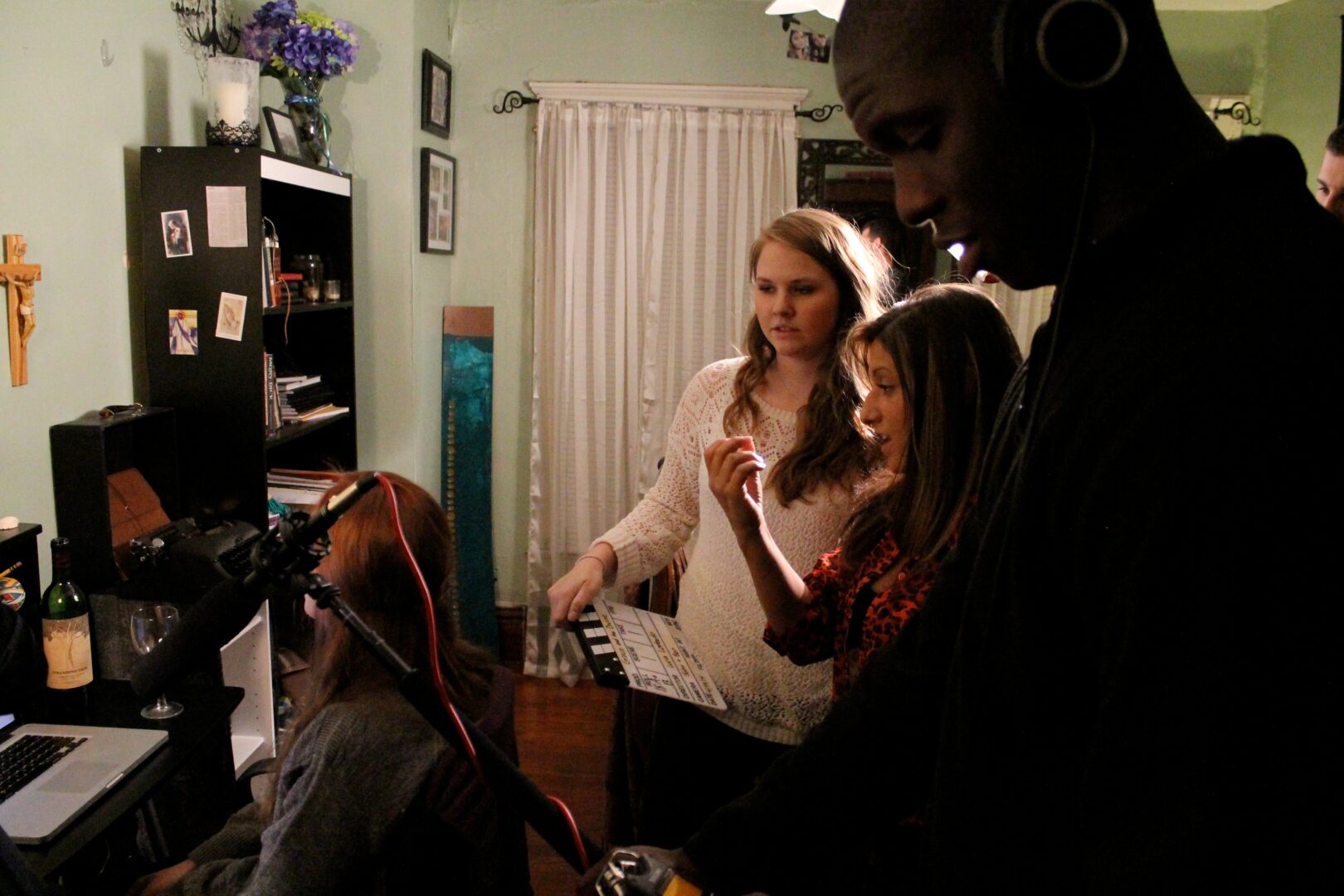
One of our goals is to help like-minded folks with similar goals connect and so before we go we want to ask if you are looking to partner or collab with others – and if so, what would make the ideal collaborator or partner?
Event Planners/Designers
For weddings, corporate events, or styled shoots, collaboration can lead to more referrals and styled content opportunities for the both of us.
Marketing Strategists or Social Media Managers
To ensure the videos are used effectively as part of a bigger brand strategy.
Hair & Makeup Artists
Especially for weddings, brand shoots, or fashion content, everyone looks better on camera with professional styling.
Motion Graphic Designers
For creating branded titles, overlays, or motion graphics that elevate video projects.
Photographers
For weddings, events, or branding shoots, working together ensures cohesive visuals and better client experience.
Contact Info:
- Website: https://luciamediaevents.com
- Instagram: luciamediaevents
- Facebook: https://www.facebook.com/luciamediaevents/
- Linkedin: https://www.linkedin.com/in/lucia-lombardo-media/
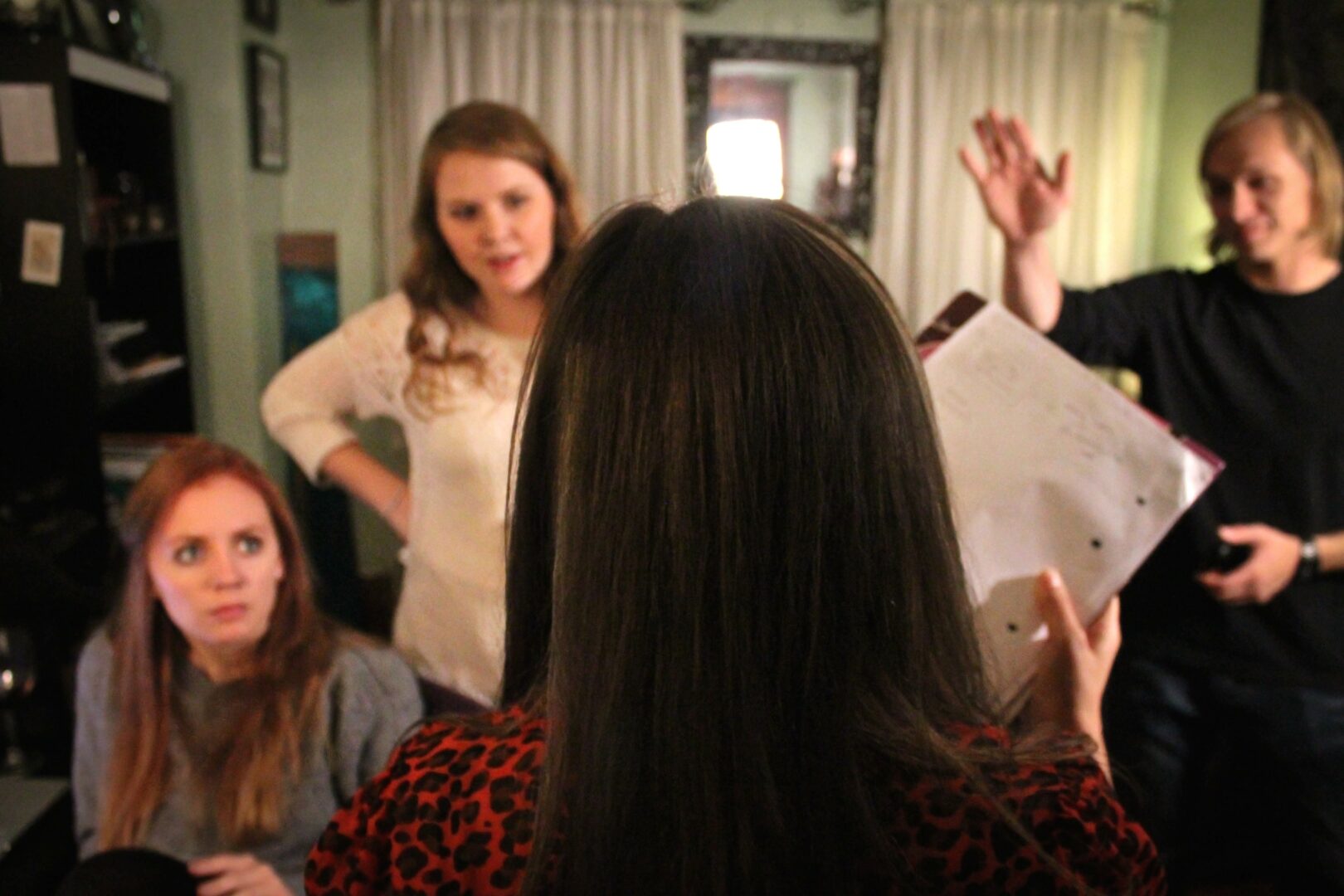
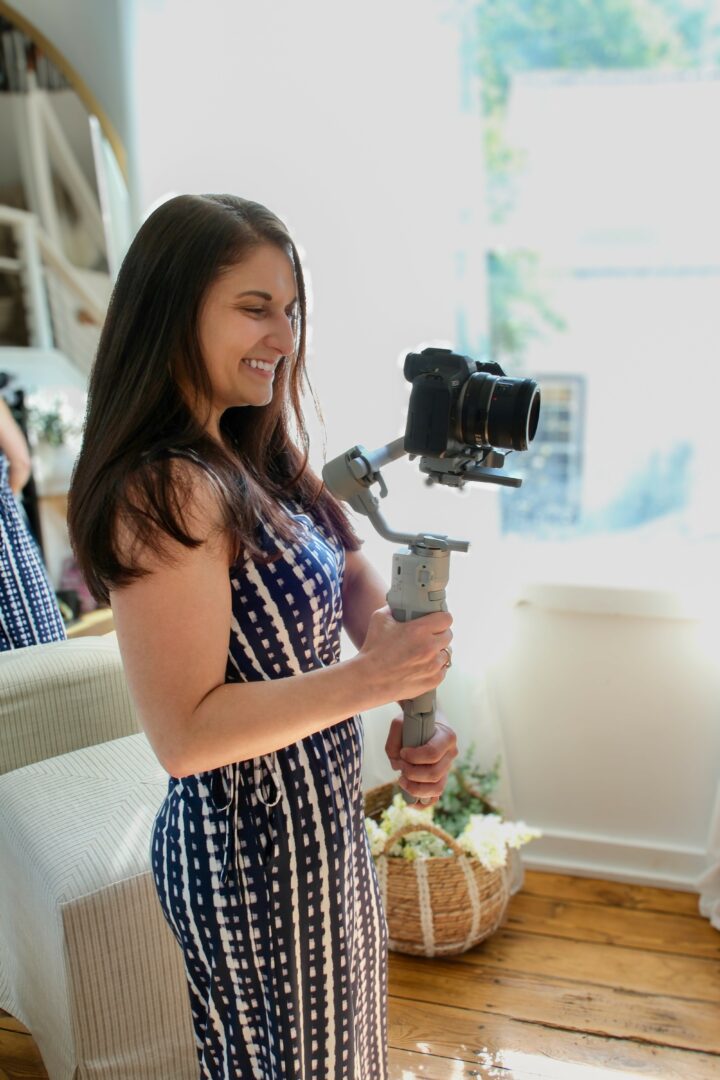
Image Credits
Brand Photography by Teah Ojeda at The Scene Creative
so if you or someone you know deserves recognition please let us know here.

